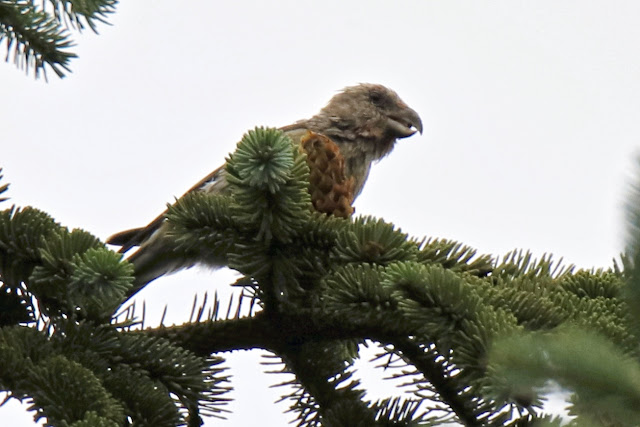Below is an update on the first season of Peregrine Watch - a bit of good news this morning for all of you interested in raptor conservation!
So far the story has been picked up here;
http://www.thejournal.ie/psni-peregrine-watch-3617067-Sep2017/
And you can hear Dr Marc Ruddock speaking about Peregrine Watch this morning on Good Morning Ulster at 7:26am, 0:56:40 in to the programme
http://www.bbc.co.uk/programmes/b095qlnm#play
The joint approach once again shows how PSNI are making wildlife crime a priority and Peregrine Watch is helping insure that those who are determined to persecute birds of prey need to be looking over their shoulder at all times - now we have eyes in the sky!
Dr. Eimear Rooney,
Raptor Officer,
NI
Northern Ireland Raptor Study Group.
Annual UK Peregrine Watch Scheme in Northern Ireland hailed a success
Following the successful launch of Operation Raptor in March 2016 the PSNI have continued to show
their commitment to tackling wildlife crime by contributing to a UK initiative named
“Peregrine
Watch” throughout 2017.
Peregrine Watch is an ongoing initiative to prevent and stop any peregrine persecution and this can
include theft of eggs and chicks from nests and/or the killing of adults and/or chicks through
poisoning, shooting or trapping at any time of the year.
The PSNI have been using the latest technology to help prevent and combat wildlife crime. Small
Unmanned Aircraft (SUA), more commonly known as ‘drones’, fitted with specialist cameras, have
been used throughout the nesting season to monitor ‘hot-spot’ areas across Northern Ireland where
crimes against birds of prey.
The Northern Ireland Raptor Study Group (NIRSG), who monitor peregrine breeding sites every year
across Northern Ireland, have said “There was a very clear reduction in the number of persecution
incidents recorded at peregrine sites this year. The average number of successful nests in Northern
Ireland each year is 49 – in 2017 there were 55.
Among these was a nest site in Co. Armagh at which persecution has been recorded for at least the
past 30 years, and for the first time in 15 years a pair of peregrines at this site was successful in
producing young. In total, 138 peregrine chicks have fledged this year, compared to the average
annual production of 109. We still recorded a number of suspected persecution incidents, but
overall this was certainly lower than in an ‘average year’.”
PSNI Wildlife Liaison Officer, Emma Meredith, said, “We are delighted to have been of assistance in
the fight against wildlife crime, and are pleased to be able to continue to work with our partners. As
far as we are aware, the Police Service of Northern Ireland is one of the first Police Services in the UK
to use this technology in this way. We are pleased to be able to effectively target hotspot areas and
areas further afield as and when required so we can work with our partners in the hope that we can
all prevent this type of crime and reach our ultimate goal to combat wildlife crime.
She continued “The Police Service of Northern Ireland take all types of crime seriously and this
includes wildlife crime such as shooting, poisoning or trapping of birds of prey. On occasions, baits
(examples such as a rabbit carcass or sausages) have been laid laced with poison in the public
domain. Be under no illusion that some poisons could also be fatal to humans, not only wildlife
suffers but also any child, adult or pet could find and ultimately consume poisoned baits. Given the
potential dangers of this and other poisons, for the first time PSNI began to use the PSNI drones
fitted with specialist cameras to assist in prevention and if possible catching the perpetrators, who if
caught will be reported to the Public Prosecution Service. I would also ask if anyone find what they
suspect to be a poisoned bait or suspicious dead bird to leave it in situ and call the police on 101.”
Sgt. Scott Fallis said, “I was very happy to be involved with Peregrine Watch, and have been involved
with NIRSG scientists over the last couple of breeding seasons in monitoring nest sites, and ringing
peregrine chicks. This is an element of wildlife crime which PSNI take very seriously to ensure these
birds are protected for future generations to enjoy. We will robustly investigate any form of
persecution of these birds not only at nesting time but throughout the year, alongside any other
protected species.”
































